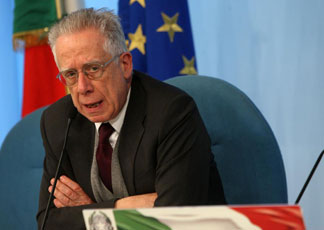From the Crisis to a European Economic Strategy: A Conversation with Tommaso Padoa-Schioppa
On the eve of the June 2010 European Council, Tommaso Padoa-Schioppa expresses his opinion on the way the EU has handled the crisis since the Spring European Council, on the priority areas in which the EU needs to take action and on the definition of a European economic strategy.

On the eve of the June 2010 European Council, Tommaso Padoa-Schioppa expresses his opinion on the way the EU has handled the crisis since the Spring European Council, on the priority areas in which the EU needs to take action and on the definition of a European economic strategy.
How would you describe the way the European Union has handled the crisis since the European Council meeting in the spring?
The European Union and Greece have every reason to consider the handling of the crisis a great success, an achievement whose relevance goes well beyond what most observers believed possible until then.
The decisions reached in May consist of two groups of actions : the measures to redress the Greek economy, and the measures put together by the EU.The measures adopted by the Greek Government as part and parcel of its pledge to the troïka (the EU, the ECB and the IMF) in return for financial aid is an extremely vigorous recovery plan which looks both strong and very brave by comparison with those that other countries have adopted in similar circumstances. The Greek austerity plan, designed to slash the country’s public deficit by 30 billion euro to push it back below the threshold of 3% of GDP by 2014, was adopted by an absolute majority in the Greek Parliament on 6 May, thus it has the full legal basis that it needs for its implementation.The EU’s decisions, on the other hand, consist of an aid package for Greece worth 110 billion euro, the approval of a 750 billion euro stabilisation fund and the ECB’s decision to buy euro area member countries’ bonds if such a move were to become necessary. These measures go well beyond what the markets considered to be indispensable before the meetings in May. In terms of both quality and quantity, they are unprecedented in EU history.
People blame the EU for failing to act with sufficient speed and it is true that, if the decisions had been reached two months earlier, the EU would have intervened at a time when the markets were less nervous. But we have to remember that it is in the nature of such extraordinary economic policy decisions as these to require a longer gestation period than one would perhaps like. It took time for the EU, and for Greece too, to forge the political will to implement a fully-fledged change of course. Then again, if we compare the time that it took the EU to reach a decision now with the time that it took the United States to reach one in the autumn of 2008 in the wake of the panic triggered by the Lehman Brothers‘ bankruptcy, we shall see that the « Troubled Asset Relief Program » (TARP) was not approved more rapidly, and indeed it even came up against a negative vote in Congress. Europe is not the only place where the time required to implement a policy decision is longer than the time it takes merely to devise measures…



